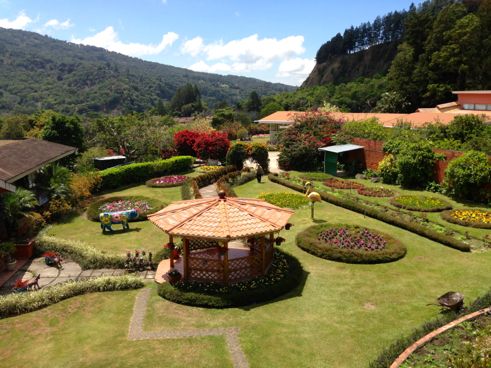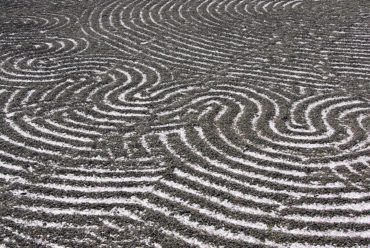Mi Jardin es Tu Jardin
While in Boquete, Panama, I visited a garden that I read about in my guidebook. It surrounds a private house but the owners allow anyone to come through the gardens during the day. I didn’t know what to expect but figured it would be a nice distraction for the morning.
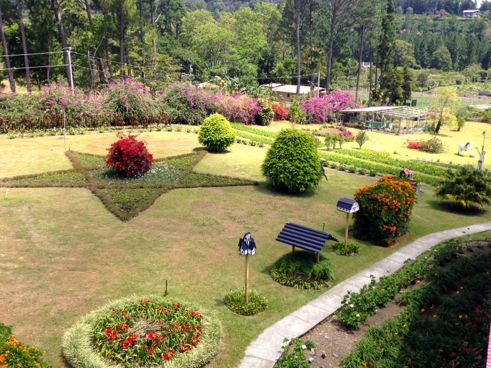
As it turns out, it’s several acres of meandering and undulating flowers, shrubs and statuary that delighted me with every turn.
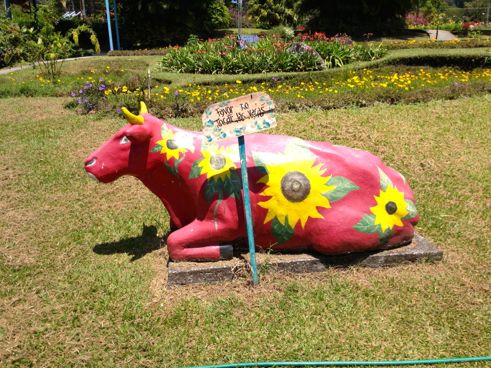

It is whimsical and unpredictable, meticulously manicured and very much free. Its name, as a matter of fact, is Mi Jardin Es Su Jardin—my garden is your garden—which is prominently displayed above the entrance.
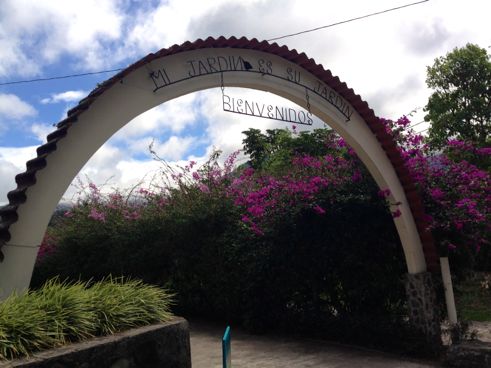
This is a place made of love, humor and desire.

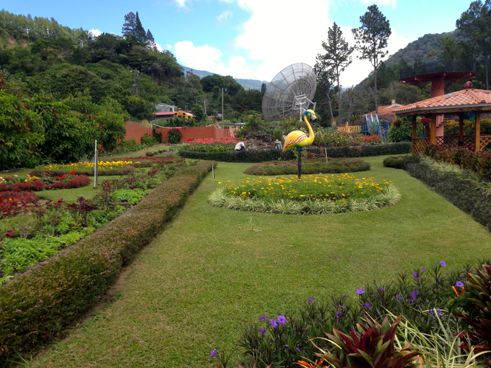
As soon as I stepped inside this beautiful fantasy, I was immediately reminded of Pearl Fryar’s garden in the little town of Bishopville, S.C. and folk artist Jose Fuster’s home in Havana, Cuba. While the three environments are very different, they all have one thing in common: they have been created from some kind of connection to the divine.
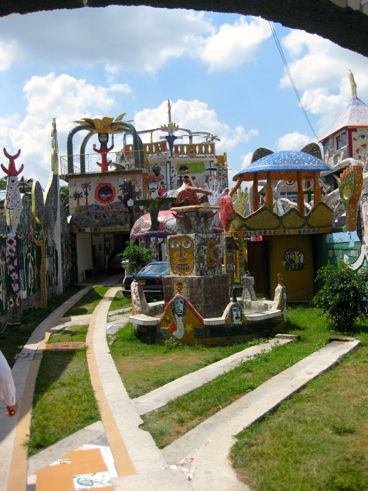
Jose Fuster’s art form is ceramics. He has worked over a decade decorating his home and yard, and those of his neighbors, essentially revitalizing the small fishing village of Jaimanitas just outside of Havana.
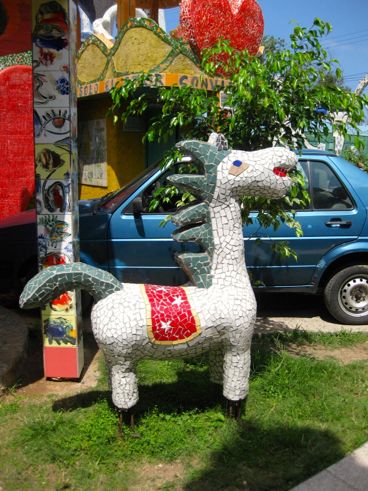
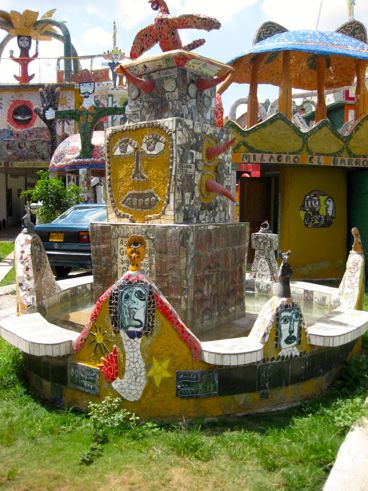
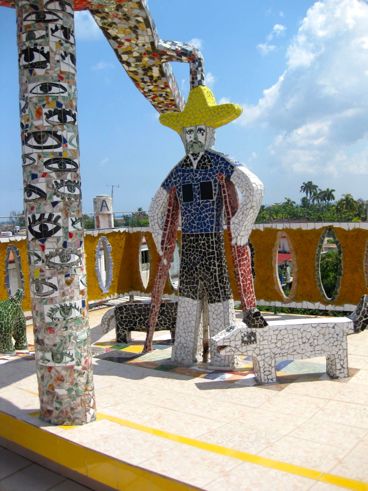
Tourists from around the world flock to his living installation and he has become an icon in the Havana art world.
I don’t know the back story on Fuster, but I do know that of Pearl Fryar.
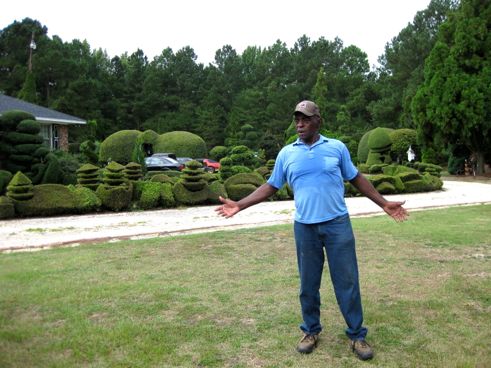
As a man of about 40, Pearl Fryar moved to Bishopville, SC only to be told the white neighbors didn’t want his family nearby, professing their concerns that he wouldn’t “keep up his yard.”
When he did buy a house, he resolved to win the town garden club’s Garden of the Month contest. He couldn’t afford the expensive plants at the local garden center, so he scrounged through their trash piles, taking their cast-offs and nurturing them back to life. Unsatisfied with allowing the plants to grow to their own desire, or in trimming his hedges like the ones down the street, he began training himself in the art of topiary.
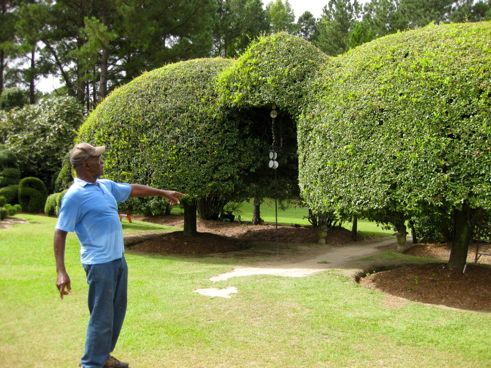
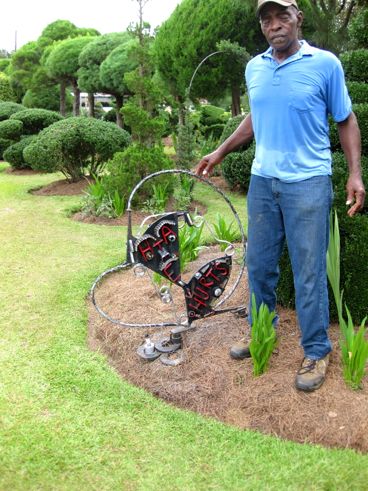
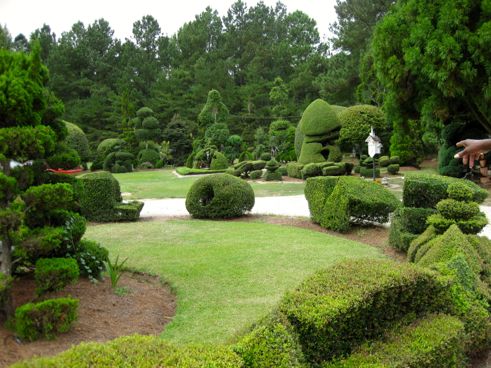
The result, some 30 years later, is a fantasy world of twisting, turning shapes limited only by Pearl’s imagination, something that this man has in ample supply. He now lectures around the country when his health allows and has been honored by the art world.
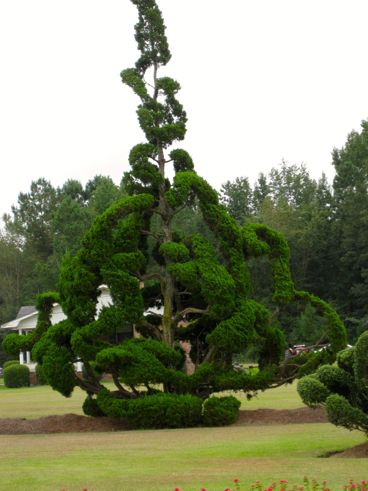
He, too, opens up his yard for free and will spend a few hours giving visitors a tour.
The man who created Mi Jardin es Su Jardin died recently, but I am sure he was cut from the same cloth as Fryar and Fuster. “Senor Jardin” (I don’t know his real name) created every bit the same selfless work of art that these others have.
People like this don’t create this kind of work for their own gain—there is no possible return on investment. The only explanation is that there is something so deep in their soul that needs expressing that they cannot stop breathing until it is done.
After 15 years of conceptualizing a book about connecting spirit to business, my proposal is finally complete. As I was ready to start the trek toward an agent and publisher, I was beside myself with worry. What if I can’t find the right agent? What if no one is interested? What if my book is never published? Three months of projection and fantasy about publication totally wiped out any joy I should have felt about reaching this milestone.
I shared my concerns with a good friend and teacher, shuddering at the attachment I heard in my voice as I spoke. He reached over and held my hand. “This book you are writing,” he said in his thick accent, “it is something you are writing from your divinity.”
“It is something you have to write,” he went on. “But writing the book is your only job. It’s not your decision as to whether or not the world will want it. The world will ask for it if it needs it. Pay attention to the book and write from the divine. The rest will take care of itself.”
Even though I wanted to hear assurances about my future on the New York Times Best Seller list, those words brought me an odd sense of relief. I just can’t worry about the publishing part. I only need to care about the authenticity and divinity of the work.
If only we all created our work through a deep place of self-fulfillment rather than a need to “succeed” in the outside world, or to prove something, imagine what a prolifically creative world this would be.
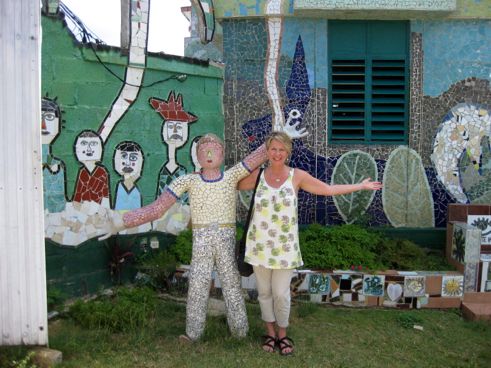
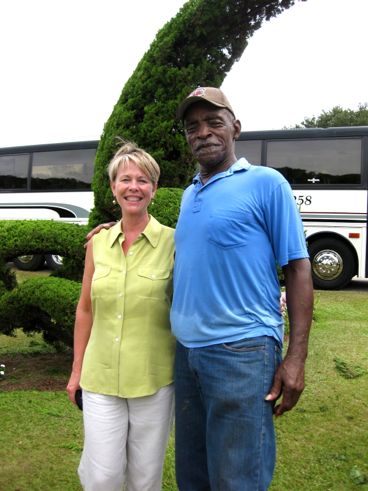
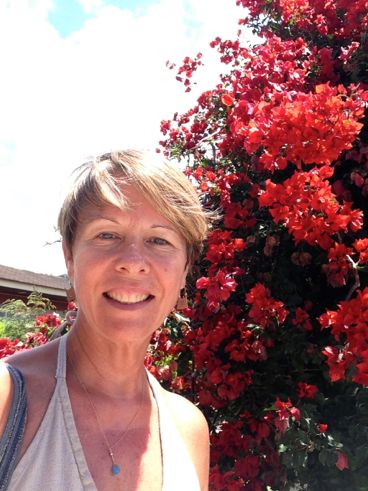
Jose Fuster, Pearl Fryar and “Senor Jardin” have all done what they needed to do. Somehow, they know their job is only to create from a place of deep connection, then unceremoniously offer it to the world. If the world takes it, so be it. But if the people stop coming, they will keep creating.
It’s in their soul to do so. And it’s in ours, too.

